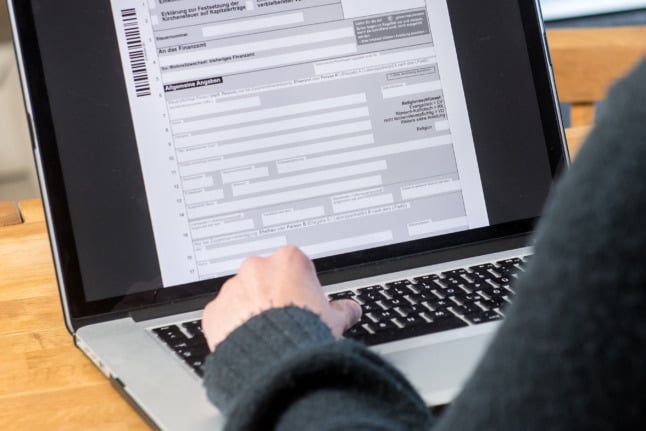In the current year alone, 853 officers are set to retire – and a total of 2,150 vacant positions are to be advertised. In order to fill these posts, some requirements needed to enter the police force have been lowered, German media has reported.
The German-language section of the exam includes a dictation of 180 words on a particular topic.
Authorities have raised the error tolerance in this dictation “slightly” in the German tests for the so-called “middle level” in the police service.
It means would-be recruits can make more mistakes and still secure a passing grade.
READ ALSO: Why it's a myth you need to know German to be hired
Meanwhile, in the fitness test, long jump and push-ups have been replaced by a pendulum run.
Police recruits in the “middle level” could go on to provide security at demonstrations or patrol airports and train stations as well as customs checks on Germany's borders.
The measures been taken to plug the staff shortage.
In several industries Germany is facing a shortage of skilled workers. Authorities have been easing immigration laws in a bid to fill positions.
READ ALSO: How Germany is set to make it easier for non-EU skilled workers to enter the labour market





 Please whitelist us to continue reading.
Please whitelist us to continue reading.
Member comments